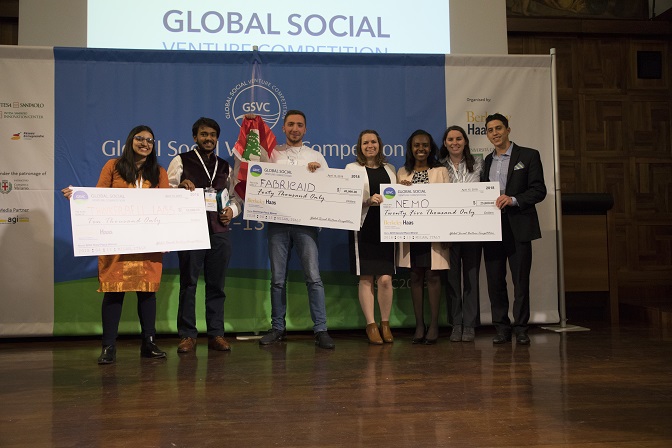The positive response by entrepreneurs to this call to action is noteworthy. For example, according to the 2018 BNP Paribas Global Entrepreneur Report, 39% of elite entrepreneurs (sample: 2,700 entrepreneurs) affirm that positive impact is a key element in the assessment of their business performance, compared to approximately 10% in 2015.
Drivers of impact entrepreneurship
According to research by ALTIS – Università Cattolica published in 2015, the main drivers of impact entrepreneurship are entrepreneurial knowledge, understanding of the natural and communal environment, and motivation. In particular, young people's enthusiasm, energy and creativity, accompanied by the enhanced opportunity to exchange knowledge and best practices at the global level, can drive them to find solutions to long-standing issues and make a real impact on their community and ultimately on society.
However, social and environmental impact priorities are very diverse and depend on each country's socio-economic and political context.
In order to recognise business ideas with high social impact by young and change-seeking start-uppers, the Global Social Venture Competition (GSVC) was launched in 1999 by the Haas School of Business UC Berkeley. The GSVC has evolved into a global network of premier business schools, universities and programmes, including ALTIS – Università Cattolica, the organiser of the Italian round. The competition demonstrates that when young people are supported and empowered to engage meaningfully with society, they do take action and prove to be successful.
Creating opportunities for young impact entrepreneurs
The business ideas—selected out of 550 from 60 countries in Africa, the Americas, Asia and Europe—have the potential to create significant impact for a better world. The winners have shown a particularly remarkable level of knowledge of the needs their products and services aim to address, along with an ability to develop successful businesses:
- FabricAid (Lebanon), with its creative model that optimises the fabric waste value chain through smart collection, management, need base distribution and social franchising;
- NeMo (USA), with the low-cost and wearable device that monitors newborns’ vital signs, empowering mothers living in rural areas (pilot in Uganda) to identify and assess danger signs at home; and
- Thinkerbell Labs (India) that developed an audio-tactile device to help visually impaired students learn how to read, write, and type in Braille language.

2018 Global Social Venture Competition - Global Winners, photo courtesy of ALTIS - Università Cattolica
Young impact entrepreneurs need opportunities to connect and foster synergies among government, business, finance and academia to promote a start-up-friendly ecosystem, where the skills and competencies along with the inspiration of impact entrepreneurs can flourish and generate a real benefit for society.
The views and opinions expressed in this article are those of the authors and do not necessarily reflect the views of The Economist Intelligence Unit Limited (EIU) or any other member of The Economist Group. The Economist Group (including the EIU) cannot accept any responsibility or liability for reliance by any person on this article or any of the information, opinions or conclusions set out in the article.




